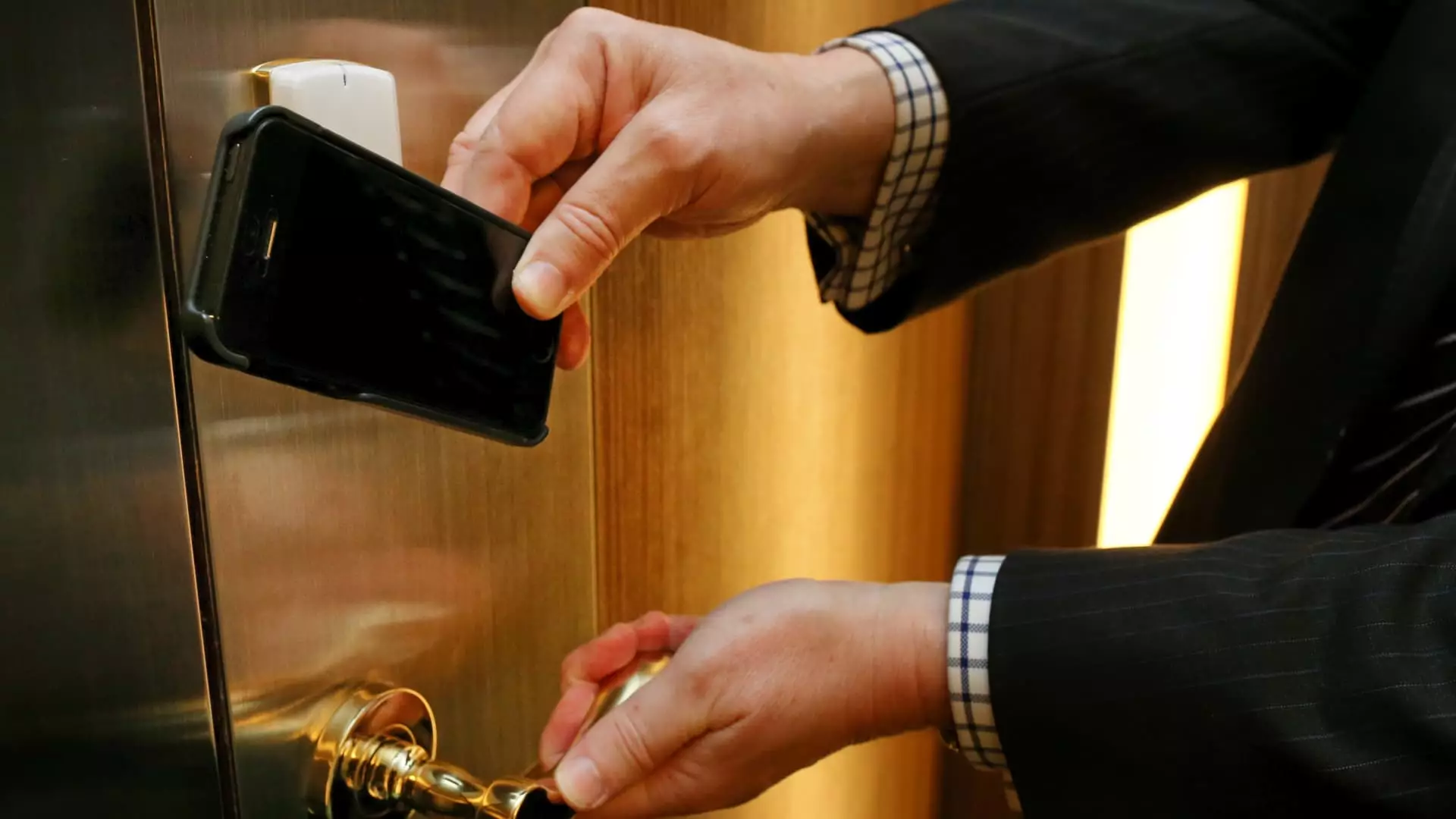In a rapidly evolving digital landscape, many hotel chains are stepping up their game to replace traditional plastic room keys with innovative digital options. The onset of the pandemic intensified the shift towards touchless technology, prompting the hospitality industry to explore safer and more secure alternatives to traditional key cards. Cybersecurity vulnerabilities in plastic hotel keys have also fueled concerns regarding the safety and reliability of current key technologies, prompting a wave of change in the sector.
Major hotel chains in the United States have long been at the forefront of digital key technology, offering guests the convenience of using their smartphones to unlock their rooms. Google Wallet and Apple Wallet are now expanding their digital key services to hotels, enabling guests to store their room keys on their devices and access their rooms with a simple tap. The move towards digital keys signifies a significant shift in the way guests interact with hotel room locks, with companies like Hilton Hotels leading the charge with their Honors app.
While the adoption of digital key solutions promises enhanced security and convenience for guests, it also raises new challenges for the industry. Security experts caution that keyless systems may introduce new vulnerabilities that hotel operators must address through robust security controls and policies. The transition to digital key systems also comes with a significant cost, including equipment, installation, maintenance, and security measures. Additionally, human habits and preferences play a crucial role in determining the success of digital key deployments, as some guests may still prefer traditional key cards for various reasons.
Despite the slow uptake of digital key options by guests, research shows that customers who use digital keys often feel safer compared to those using plastic cards. The convenience and ease of use offered by digital keys outweigh the perceived security risks for many guests, driving hotel chains to invest in digital key solutions. While concerns about cybersecurity persist, the promise of a seamless and efficient user experience continues to push the industry towards embracing digital innovations in room key technology.
As hotels navigate the transition from plastic to digital room keys, finding the right balance between security, convenience, and cost-effectiveness remains a key priority. While digital keys offer a range of benefits in terms of user experience and operational efficiency, traditional key cards are unlikely to fade away entirely. Advancements in RFID technology and the integration of digital key solutions with mobile apps are shaping the future of hotel room access, catering to diverse guest preferences and expectations.
The evolution of hotel room keys from plastic to digital reflects a broader shift towards smart and connected technologies in the hospitality industry. While digital key solutions offer a host of advantages in terms of security and convenience, hotels must navigate the complex landscape of cybersecurity threats, guest preferences, and operational challenges to ensure a seamless transition to the digital era. As technology continues to evolve, finding the right balance between innovation and tradition will be key to shaping the future of hotel room keys.

